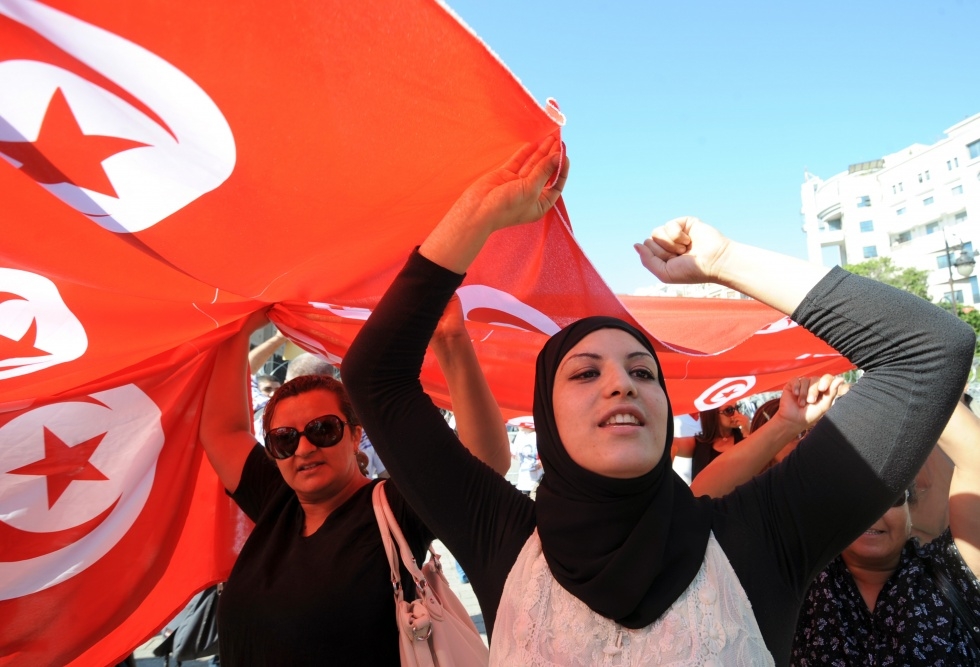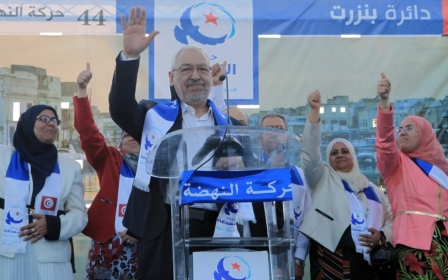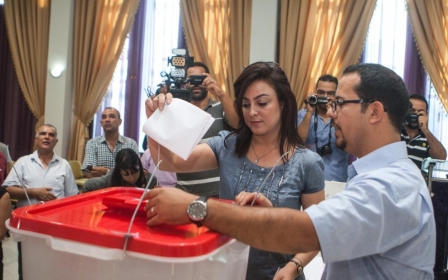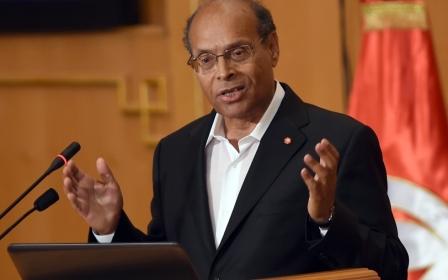Tunisia female candidates seek a 'motivational model'

Female parliamentary candidates in Tunisia hope the country's impending legislative polls, in which women will account for over half of the registered voters, will improve the image of the role played by women in the nascent democracy.
"One of the most important challenges [for female candidates who win seats] in this year's legislative polls will be to practice politics in a novel way that will provide a satisfactory, motivational model for the next generation of women," Saida Wanissi, a female candidate from the Islamist Ennahda party, told Anadolu Agency.
"It is important to replace the traditional image of feminism with a true model for feminism – one that suits the reality of Tunisian society," she said.
According to final estimates from the registration process for the polls, which are slated for October 26, women account for 50.5 percent of the electorate.
Forty-seven percent of registered parliamentary candidates are women. However, only 12 percent of the electoral lists are led by female candidates, leaving the latter in a less-than-ideal position, according to candidate Nagla Boryal.
"The number of women leading electoral lists is too weak," said Boryal, who heads up the centrist Democratic Alliance's list.
"I hope these women win as many votes as possible, regardless of their party affiliations," she added.
Boryal agreed with Wanissi on the importance of this year's parliamentary vote for Tunisia's female politicians.
"Women who win parliamentary seats should focus on shattering the stereotype that reduces women's involvement in political life to women's and children's issues," Boryal said.
"Incoming female MPs should improve their political discourse in areas traditionally reserved for men, such as economics, security and diplomacy," she added.
Difficulties
Both candidates say that, as women, they have encountered numerous difficulties while campaigning for the upcoming elections.
One obstacle faced by both women is the fact that, because electoral rallies in Tunisia are held late in the evening, most of those in the audience are men.
Moreover, Boryal says female candidates, unlike men, have to be escorted at all times during campaign activities, limiting their ability to communicate closely with voters.
"It's difficult to organize campaign events or interact with voters in certain areas," Boryal said. "Even if we manage to get around this, we must be accompanied by someone at all times, which is something men don't have to deal with."
According to Tunisia's electoral commission, the majority of female-led electoral lists are found in cities located on the country's relatively urban and densely populated eastern coast.
Twenty-eight percent of electoral lists in the northeastern city of Nabeul are headed up by women – the country's highest proportion of female representation, followed by capital Tunis, where the figure stands at 22 percent.
Ten women lead 27 electoral lists associated with the secularist Union for Tunisia electoral alliance – the highest number of female candidates in a single electoral bloc.
This is followed by the electoral lists of the Congress for the Republic Party, led by President Moncef al-Marzouki.
Parties and candidates have had 21 days to campaign in the run-up to the October 26 poll – the country's second since a popular uprising in 2011 ousted autocratic president Zine al-Abidine Ben Ali.
Tunisia, the birthplace of the "Arab Spring" uprisings, has about 5.2 million voters eligible to cast ballots for a total of 13,000 candidates vying for seats in the 217-member National Assembly.
There are 190 political parties in Tunisia, most of which emerged in the wake of the 2011 uprising.
Tunisia is also slated to hold presidential elections on November 23.
Middle East Eye propose une couverture et une analyse indépendantes et incomparables du Moyen-Orient, de l’Afrique du Nord et d’autres régions du monde. Pour en savoir plus sur la reprise de ce contenu et les frais qui s’appliquent, veuillez remplir ce formulaire [en anglais]. Pour en savoir plus sur MEE, cliquez ici [en anglais].




